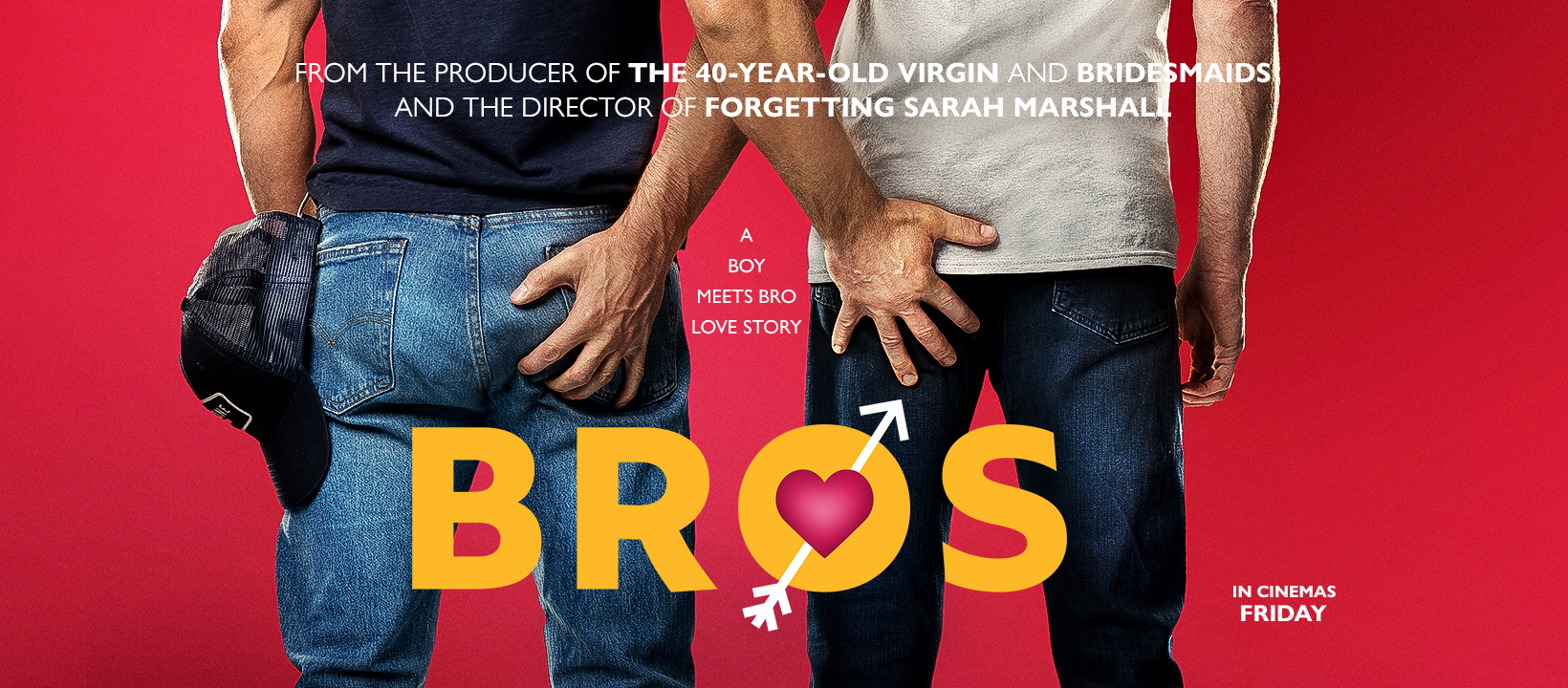
Editor-in-Chief Dan Hunt commends Bros as an original take on the rom-com formula, but the plot does not do much to embrace the authenticity of LGBTQ+ relationships
As the first gay rom-com produced by a major studio, Bros feels severely overdue. Starring and co-written by Billy Eichner, the film has received plaudits for its diverse casting and accurate portrayal of the LGBTQ+ experience. Sadly, in attempting to present a positive depiction of queer love on the big screen, Bros’ plot fails to capture the nuance of gay relationships, and instead finds itself relying heavily on the familiar yet oh-so-predictable tropes of the romantic comedy.
Bros follows Bobby (Billy Eichner), a gay, 40-something podcast host with a passion for LGBTQ+ history and a determination to tell queer stories. Bobby’s contentedness with the adventure of single life is challenged when he meets Aaron (Luke Macfarlane), a muscled jock disaffected by his boring job and unsatisfying sexual escapades with men who he fails to emotionally or intellectually connect with. They embark on a romance neither of them feel entirely comfortable with, as the relationship forces them to confront their complex relationships with their sexualities, masculinities and physical appearances. The film traces the development of their relationship and the ways it’s affected by the straight and other queer people in their lives.
It is refreshing that no gays are buried in this film – in fact, such tropes are knowingly referenced and criticised in the film itself
The film ticks all of the rom-com cliché boxes from a fresh yet arguably unimaginative perspective. Boy meets boy, boy falls in love with boy, boy makes a mistake and falls out with boy, boy acknowledges his mistake and makes up with boy, they both live happily ever after. Such a proven formula feels comforting and provides a welcome contrast from the barrage of sad LGBTQ+ films which involve internal struggle, societal wrath, and, in many cases, the death of queer characters. It is refreshing that no gays are buried in this film – in fact, such tropes are knowingly referenced and criticised in the film itself.

…by conforming so strictly to a well-established heteronormative storyline, Bros…continues to propagate an overly idealistic vision of what queer love ‘should’ be
However, this is where the cracks start to form. Bobby’s work sees him curating a museum for LGBTQ+ history, and his determination to reverse the erasure of queer stories sees him challenge heteronormativity in real-life and in film. However, by conforming so strictly to a well-established heteronormative storyline, Bros, perhaps inadvertently, continues to propagate an overly idealistic vision of what queer love ‘should’ be. I’m not saying there needed to be an unhappy ending, but a simple acknowledgement of the fact that single life for queer people can be valid, happy, and fulfilling, would have felt more authentic than a seemingly forced resolution where Bobby and Aaron naturally end up together in the end.
That being said, it is a very enjoyable film to watch. Cameos from gay icons including Harvey Fierstein and Debra Messing give Bros a nostalgic playfulness, and the film finds humour in even the niche parts of gay culture. It jokes that straight people are now ‘too comfortable’ with gay sex, and highlights the divisions between groups of LGBTQ+ people despite the common endeavour of acceptance. This too contributes to the unavoidable feeling that the plot lets down what is otherwise a very good film.
Admittedly some of the dialogue is a bit clunky and the exposition could rely on fewer monologues, but this affording Bobby – and to a lesser extent Aaron – to be exhibited as multi-faceted, three-dimensional characters, is a small price to pay. Eichner’s achievement in presenting an array queer characters is certainly something that should be admired.
Verdict:
Bros is a very enjoyable, easy-to-watch, and largely unproblematic portrayal of queer love. It attempts to tackle the problems of queer erasure in the film industry but sadly fails to fully embody a sense of authenticity in the relationship it presents. You should watch Bros as a funny and original take on the rom-com genre we know and love. However, if you’re looking for a film that challenges the heteronormativity of gay films, look elsewhere.
Rating: 7/10
Bros is in cinemas now
For more recent releases, check out these other articles from Redbrick Film:
Comments